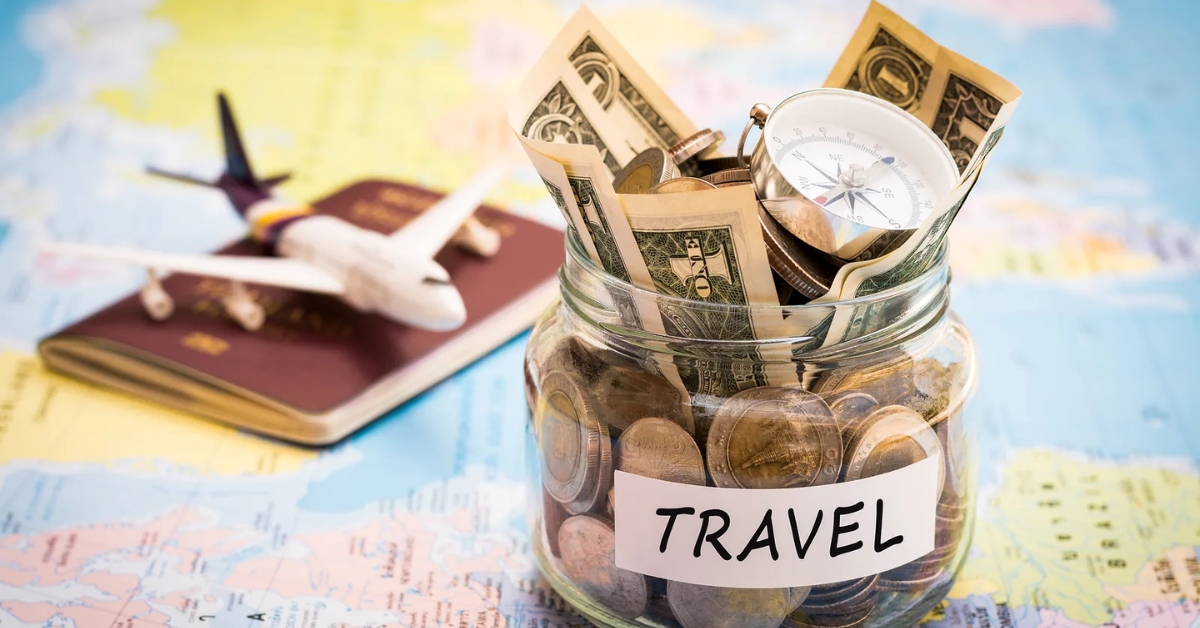Travel fee settlement can be a confusing and sometimes frustrating part of traveling. As a U.S. traveler, it’s important to understand what these charges entail and how to verify their legitimacy. In this comprehensive guide, you’ll learn what travel fee settlements are, how to verify their legitimacy, steps to take if you suspect fraud, and tips to avoid fraudulent charges.
Travel Fee Settlement
What is Travel Fee Settlement?
Travel Fee Settlement is the process of calculating and billing travelers for extra expenses incurred during a trip. These fees can be due to a variety of services and circumstances, such as B. airline baggage fees, hotel resort fees, and rental car insurance fees. For example, you may receive a Travel Fee Settlement from an airline for checked baggage, or from a hotel for use of room amenities. Understanding these charges is important to effectively manage your travel budget and avoid unexpected expenses.
Types of Travel Fees
Airline Fees
Airlines often impose several types of fees that can significantly increase the cost of air travel. Here are some common airline fees:
- Baggage Fees: Charges for checked and sometimes carry-on baggage.
- Seat Selection Fees: Costs associated with choosing specific seats, such as those with extra legroom.
- In-Flight Services: Fees for meals, beverages, and entertainment.
Hotel Fees
Hotels may also charge various fees that can add up quickly. These include:
- Resort Fees: Daily charges for amenities such as pools, gyms, and Wi-Fi.
- Early Check-In/Late Check-Out Fees: Costs for arriving early or departing late.
- Minibar Charges: Fees for consuming items from the in-room minibar.
Car Rental Fees
Renting a car often comes with additional charges that travelers should be aware of:
- Insurance Fees: Optional or mandatory insurance coverage.
- Additional Driver Fees: Costs for adding extra drivers to the rental agreement.
- Fuel Charges: Fees for not returning the car with a full tank of gas.
Common Reasons for Travel Fee Settlement
Travel fee settlements can occur for several reasons, including:
- Billing Errors: Mistakes made during the billing process that need to be corrected.
- Policy Changes: Updates to a company’s fee structure that require adjustments to previous charges.
- Service Upgrades: Additional services requested by the traveler, such as room upgrades or premium seating.
How to Verify the Legitimacy of a Travel Fee Settlement
Research the Company
Before paying a travel fee settlement, it’s important to research the company involved. Here are some steps you can take:
Online Reviews
Check sites like TripAdvisor, Yelp, and the Better Business Bureau (BBB) for reviews from other travelers. These reviews can provide insight into whether the company is reputable and if other customers have experienced similar issues.
Official Websites
Visit the company’s official website to verify the information provided. Look for details about the fees in question, and ensure that the charges match the company’s stated policies.
Contact Customer Service
Reaching out to the company’s customer service can help clarify any doubts about the legitimacy of a travel fee settlement.
Direct Communication
Call the customer service hotline and ask specific questions about the fees. For example, you might say, “Can you explain why I was charged this fee?” This direct approach can quickly resolve misunderstandings.
Email Correspondence
If calling isn’t an option, email the company and keep records of all communications. An email trail can serve as evidence if you need to dispute the charge later.
Check for Common Red Flags
Be aware of red flags that might indicate a fraudulent travel fee settlement:
- Unusual Payment Methods: Be cautious if the company requests payment via unconventional methods, such as wire transfers or cryptocurrency.
- Poor Online Presence: A lack of online reviews or a poorly designed website might suggest a scam.
- Lack of Contact Information: Legitimate companies typically provide multiple ways to contact them, including phone numbers, email addresses, and physical addresses.
Steps to Take if You Suspect a Travel Fee Settlement Scam
Dispute the Charge
If you believe in travel Fee Settlement, you should dispute the charge with your bank or credit card company.
Contact Your Bank or Credit Card Company
Most banks and credit card companies offer a process for disputing charges. Contact them as soon as possible to start the dispute process and provide evidence such as: B. Receipts and email correspondence.
Report the Issue to Consumer Protection Agencies
In addition to disputing the charges with your bank, you should also report the issue to consumer protection agencies such as the Federal Trade Commission (FTC) and the Best Business Bureau (BBB). These organizations can investigate the matter further and prevent others from becoming victims of a similar scam.
File a Complaint
Filing a formal complaint can also be an effective way to take action against fraudulent travel fee settlements.
With the Travel Company
Contact the company directly and file a complaint with their customer service department. Provide all relevant details and request a resolution.
With Relevant Authorities
If the company does not resolve the issue, file a complaint with relevant authorities, such as your state’s Attorney General or the Consumer Financial Protection Bureau (CFPB). These agencies can take legal action if necessary.
Tips for Preventing Fraudulent Travel Fee Settlements
Book Through Reputable Sources
Booking through trusted travel agencies and legitimate booking websites can help you avoid fraudulent travel fee settlements. Here are some tips:
- Use Established Travel Agencies: Companies like Expedia, Travelocity, and Orbitz have established reputations and are less likely to engage in fraudulent practices.
- Verify Booking Websites: Ensure that the website you are booking through is legitimate. Look for secure payment options and read reviews from other travelers.
Use Secure Payment Methods
Using secure payment methods can protect you from fraudulent charges. Here are some options:
- Credit Cards: Credit cards offer more protection against fraud compared to debit cards. They often have zero-liability policies that protect you from unauthorized charges.
- PayPal: PayPal provides an additional layer of security and allows you to dispute charges if necessary.
Stay Informed
Staying informed about common travel scams and reading the fine print can help you avoid fraudulent travel fee settlements.
Read the Fine Print
Always read the terms and conditions of your travel bookings. Understanding the fine print can help you identify potential fees and avoid surprises.
Stay Updated on Common Scams
Keep yourself updated on common travel scams by reading travel blogs, news articles, and government websites. The FTC and the BBB often publish information about the latest scams and how to avoid them.
Conclusion
Travel fee settlements are a common part of the travel experience, but it’s essential to understand and verify their legitimacy. By researching companies, contacting customer service, and staying informed about common scams, you can protect yourself from fraudulent charges.
Remember to book through reputable sources, use secure payment methods, and read the fine print to avoid unexpected fees. Share your experiences and tips on verifying the legitimacy of travel fee settlements to help other travelers navigate this complex aspect of travel.
FAQs
What should I do if I receive an unexpected travel fee settlement?
First, research the company and contact their customer service to understand the charge. If you believe it’s a mistake or a scam, dispute the charge with your bank or credit card company and report it to consumer protection agencies.
Are travel fee settlements common in the travel industry?
Yes, travel fee settlements are common and can arise from various services such as airline baggage fees, hotel resort fees, and car rental insurance charges.
How can I protect myself from fraudulent travel fee settlements?
Book through reputable sources, use secure payment methods, read the fine print, and stay informed about common travel scams. If you encounter a suspicious fee, research the company and contact customer service to verify its legitimacy.




